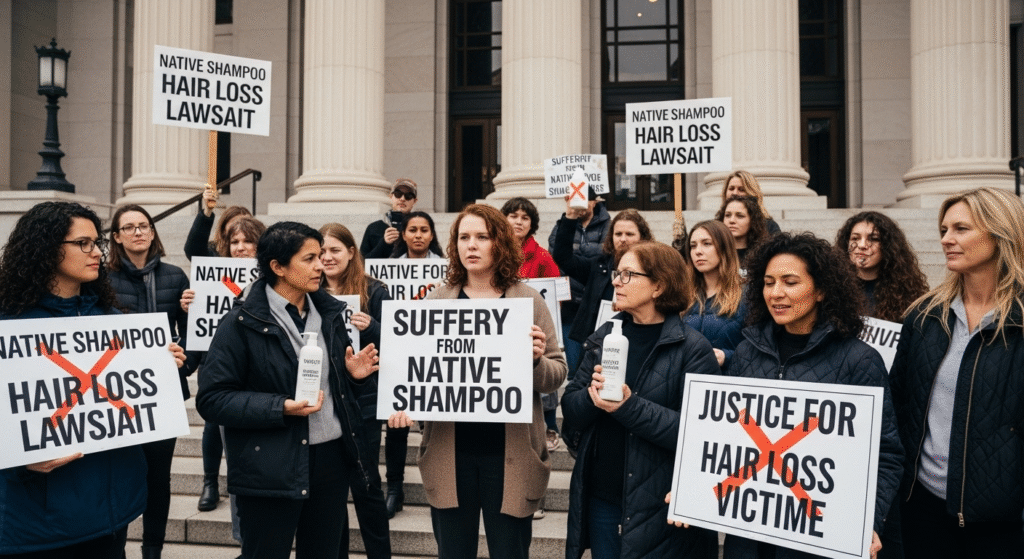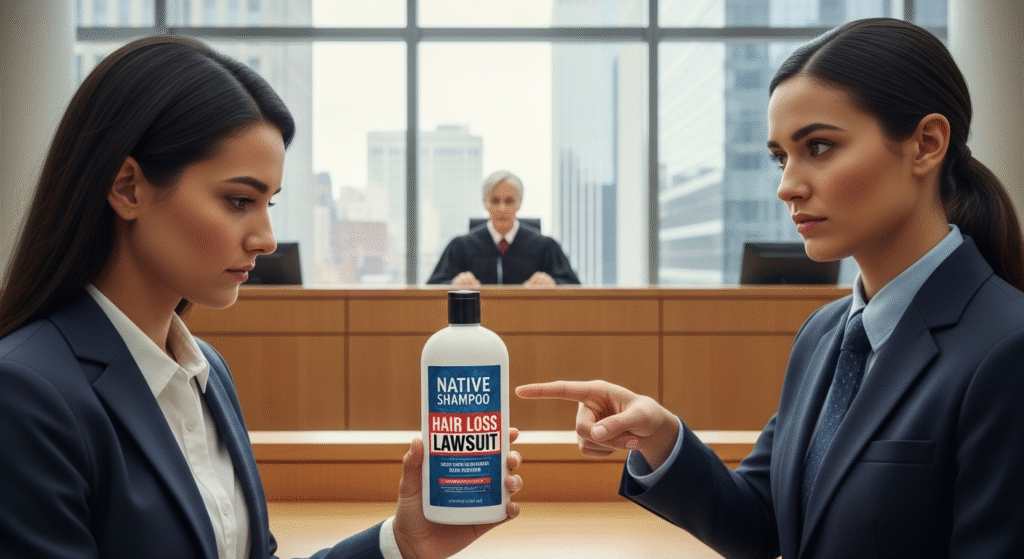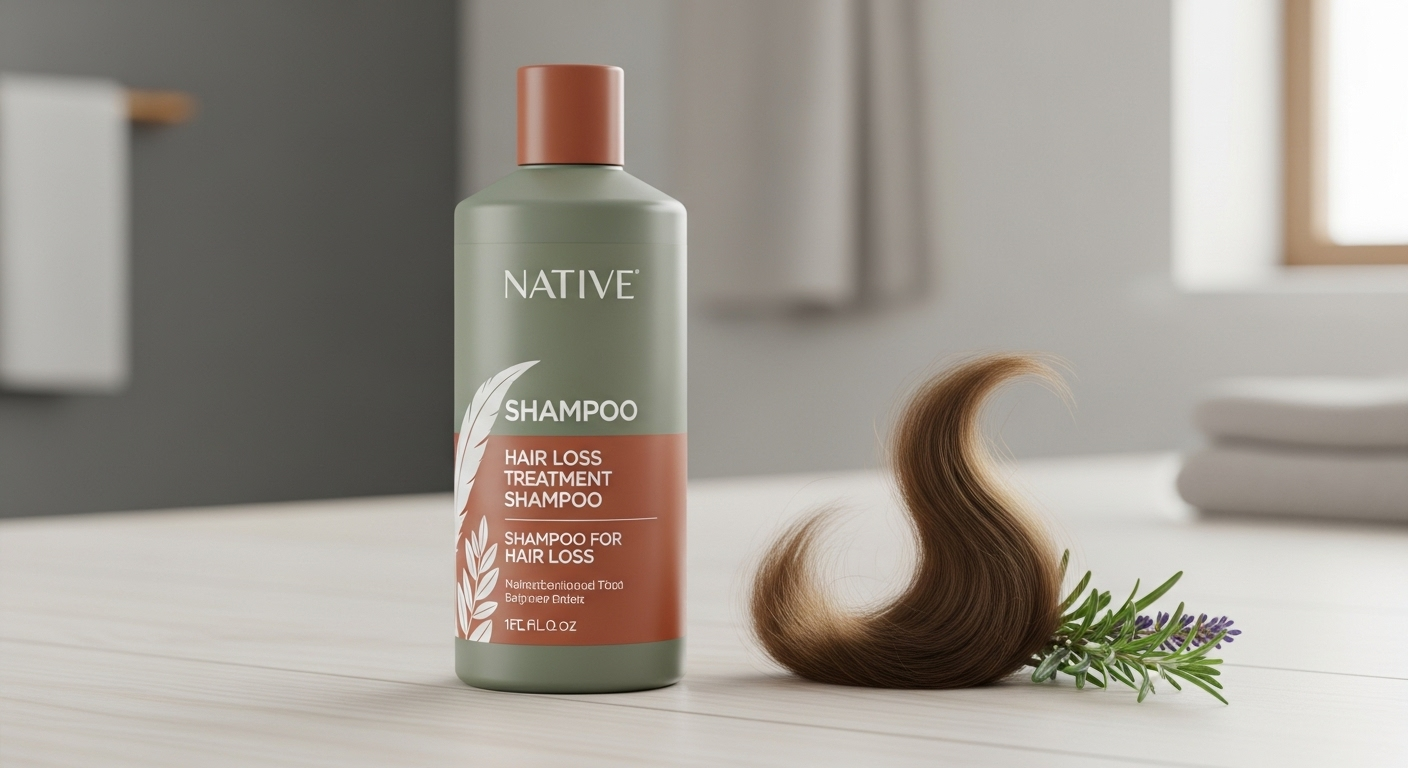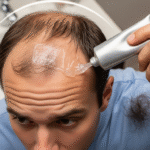Concerns about hair loss linked to hair care products have sparked controversy, and one such product is Native Shampoo. The Native shampoo hair loss lawsuit has raised alarms among consumers regarding the safety of the product's ingredients. Many users have claimed that the shampoo caused hair thinning and irritation, but is there truth behind these …
Concerns about hair loss linked to hair care products have sparked controversy, and one such product is Native Shampoo. The Native shampoo hair loss lawsuit has raised alarms among consumers regarding the safety of the product’s ingredients.
Many users have claimed that the shampoo caused hair thinning and irritation, but is there truth behind these allegations? In this article, we will explore the details of the lawsuit, examine the ingredients in Native Shampoo, and discuss the potential risks. By the end, you will have a better understanding of whether or not Native Shampoo is to blame for hair loss.

Understanding the Allegations
The Rise of Consumer Complaints
In recent months, several consumers have reported experiencing hair thinning, shedding, and scalp irritation after using Native Shampoo. These complaints have surfaced across social media, online forums, and product review platforms, with many users questioning whether the shampoo’s ingredients might be responsible for these side effects.
While hair loss is a common issue and can be caused by numerous factors, the similarity in complaints has led to growing concerns about the safety of Native Shampoo. The number of consumers who have reported similar experiences suggests that there may be a link between the product and the hair loss symptoms they have experienced.
The Role of PFAS Chemicals
A significant aspect of the allegations against Native Shampoo involves the presence of per- and polyfluoroalkyl substances (PFAS) in the product. PFAS are a class of synthetic chemicals known for their water- and grease-repellent properties. These chemicals are commonly found in non-stick cookware, water-resistant fabrics, and even some personal care products.
Studies have shown that PFAS can accumulate in the body and have been linked to various health issues, including hormonal disruptions, immune system problems, and even cancer. Some of these chemicals have been associated with hair thinning and scalp irritation, making their potential presence in Native Shampoo a concerning factor.
At the heart of the lawsuit is whether Native Shampoo contains these harmful PFAS chemicals and whether they contribute to the hair loss reported by some consumers.
Investigations and Legal Actions
Class Action Lawsuit Considerations
As the complaints about Native Shampoo continue to grow, several law firms have initiated investigations into the possibility of a class action lawsuit. The lawsuit would likely focus on potential false advertising claims, as Native Shampoo is marketed as containing “naturally derived” ingredients. If PFAS chemicals are found in the product, it could be argued that the company misled consumers who were seeking safer, more natural alternatives for their hair care routine.
Consumers who have experienced hair loss after using Native Shampoo could potentially join the class action lawsuit to seek compensation. The ongoing legal action will depend on whether PFAS chemicals are proven to be in the shampoo and whether their presence can be directly linked to the hair loss issues that users have reported.
Ongoing Research and Testing
The presence of PFAS in Native Shampoo is still under investigation. Laboratories are conducting tests to detect these chemicals in various batches of the product. These studies are crucial in determining the safety of the product’s ingredients and whether they pose any risk to consumer health, particularly regarding hair loss.
The results of these ongoing tests will help clarify whether the allegations are valid or if other factors may be contributing to the reported hair loss. Until these tests are completed, it is difficult to definitively state whether Native Shampoo is linked to hair thinning or shedding.
Consumer Experiences and Expert Opinions

User Testimonials
Many users have shared their personal experiences with Native Shampoo, reporting adverse effects such as increased hair shedding and scalp irritation. These testimonials have been particularly alarming, as they suggest that the product may be having a more significant impact on hair health than originally thought. The fact that multiple users have reported similar issues strengthens the case for further investigation into the shampoo’s safety.
One user mentioned, “I started using Native Shampoo and within a few weeks, I noticed more hair in the shower drain. After stopping the product, the shedding significantly decreased.”
While individual reactions vary, the volume of these reports raises important questions about the product’s formulation and potential side effects.
FAQs
Q1: Can Native Shampoo cause hair loss?
While there is no definitive evidence proving that Native Shampoo causes hair loss, some users have reported increased shedding and scalp irritation after using the product. Investigations into the presence of PFAS chemicals, which have been linked to health issues, are ongoing.
Q2: What are PFAS chemicals, and why are they concerning?
PFAS are synthetic chemicals known for their resistance to water, grease, and stains. They are used in various consumer products, including some personal care items. PFAS have been linked to health problems like hormonal disruption and immune system suppression, which could potentially contribute to hair loss or irritation.
Q3: What should I do if I experience hair loss after using Native Shampoo?
If you notice hair loss or scalp irritation after using Native Shampoo, it’s a good idea to discontinue use and consult a dermatologist. Your doctor can help determine whether the shampoo is causing the issue or if other factors are at play.
Q4: Are there any safer alternatives to Native Shampoo?
If you’re concerned about the ingredients in Native Shampoo, consider using hair care products that are free from potentially harmful chemicals like PFAS. Look for brands that focus on natural, non-toxic ingredients to support scalp health.
Q5: What are the next steps in the Native Shampoo lawsuit?
The lawsuit is currently under investigation, with law firms exploring the possibility of a class action. Results from ongoing PFAS tests will determine the next steps, including whether the product needs to be recalled or if compensation will be offered to affected consumers.
Conclusion
The Native shampoo hair loss lawsuit has sparked significant concerns among consumers, leading to investigations into whether the product’s ingredients, particularly PFAS chemicals, are responsible for the reported hair loss. While the presence of these chemicals is still under investigation, it’s crucial for consumers to be aware of the potential risks associated with personal care products. Until conclusive results are provided, those experiencing hair thinning or irritation from Native Shampoo should consider discontinuing its use and consulting a healthcare professional.
For those concerned about hair loss, it’s important to stay informed about the ongoing research and legal actions regarding Native Shampoo and other personal care products. This awareness can help you make educated decisions about your hair care routine and avoid unnecessary risks.
Ready To Take Your Next
If you’ve experienced hair thinning or irritation after using Native Shampoo, consider consulting a dermatologist to assess your hair and scalp health. Stay updated on the results of ongoing investigations and take appropriate steps to pro tect your well-being. If you’re seeking safer alternatives for your hair care routine, explore natural hair care options that are free from harmful chemicals.






